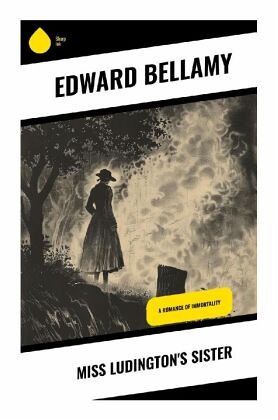
Miss Ludington's Sister
A Romance of Immortality
Versandkostenfrei!
Versandfertig in 6-10 Tagen
9,00 €
inkl. MwSt.

PAYBACK Punkte
0 °P sammeln!
In "Miss Ludington's Sister," Edward Bellamy crafts a compelling narrative that intertwines themes of social justice and gender dynamics, set against the backdrop of late 19th-century America. The story revolves around the character of Clara, whose experiences illuminate the constraints imposed on women during this period. Bellamy's prose is characterized by its incisive clarity and rich symbolism, echoing elements of both realism and utopian literature. Through the intricate portrayal of personal relationships and societal expectations, the novel serves as a critique of contemporary social st...
In "Miss Ludington's Sister," Edward Bellamy crafts a compelling narrative that intertwines themes of social justice and gender dynamics, set against the backdrop of late 19th-century America. The story revolves around the character of Clara, whose experiences illuminate the constraints imposed on women during this period. Bellamy's prose is characterized by its incisive clarity and rich symbolism, echoing elements of both realism and utopian literature. Through the intricate portrayal of personal relationships and societal expectations, the novel serves as a critique of contemporary social structures while inviting readers to envision a more equitable future. Edward Bellamy, a pioneering figure in American literature and social criticism, is best known for his influential utopian novel "Looking Backward." His ideological inclinations drew from the social turmoil of the industrial age, shaping his belief in reform and equity. "Miss Ludington's Sister" reflects his concern for women's roles in society and their struggles for autonomy, a viewpoint borne out of the growing feminist discourse of his time. His personal experiences and observations of societal injustices undoubtedly influenced the depth of his characterizations and themes. This novel is a must-read for anyone interested in early feminist literature and the social critiques of the Gilded Age. Bellamy's insightful commentary and deft storytelling invite readers to reflect on enduring social issues, making the work relevant not only in its own time but for contemporary audiences seeking a deeper understanding of gender and equality.












